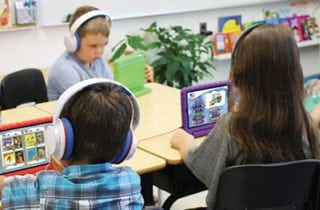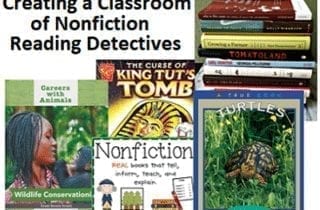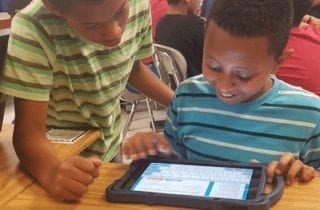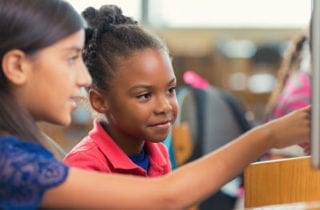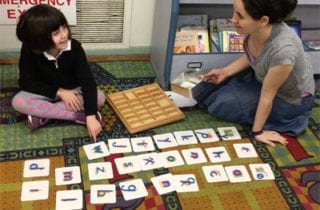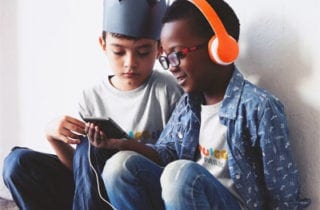In this edWebinar, Emily Rozmus, INFOhio Instructional Team Specialist, explores the best digital reading practices for early literacy.
In this edWebimar, learn how adaptive digital literacy scaffolds support a growth mindset and the grit needed to accelerate informational text proficiency.
The goal of this edWebinar is to focus on specific and practical methods teachers can use in their classrooms to nurture nonfiction reading skills for students in grades three through eight.
In this edWebinar, take a close look at how giving elementary students an authentic audience for their writing can dramatically boost their intrinsic motivation to write.
In this edWebinar, Marisa Russo reviews effective interventions for struggling readers and explores online, research-driven tools that differentiate instruction in foundational reading skills, frontload vocabulary for ELLs, and ensure that teachers are supported in meeting the needs of diverse learners
In this webinar Eyal Rav-Noy and Tzippy Rav-Noy, Co-Founders of Capit Learning, will begin with a discussion of the National Reading Panel Report, an evidence-based assessment of the scientific research literature on reading and its implications for reading instruction.
In this webinar, teacher and trained blended learning expert Sarah Rich will share ways for you to better use interactive reading apps in your Pre-K to Grade 2 classroom to increase a variety of skills such as comprehension, receptive language, and vocabulary.
In this edWeb.net webinar, presented by the College and Career Readiness community, Kevin Baird discussed research regarding best practices and investigated pedagogy and implementation.


